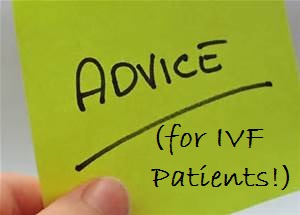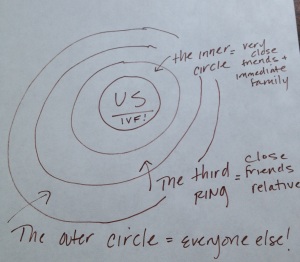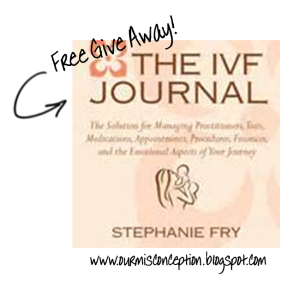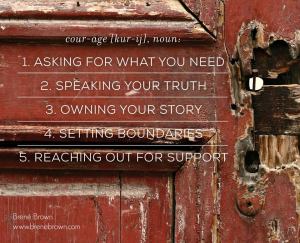My last post…everything you need to survive IVF in one place.
If you are wondering why this blog hasn’t been updated in some time it is because it was a launch blog for my book, The IVF Journal. The book was released on March 25th, 2014 and the goal of this blog was to share information about the book and about my personal story (which isn’t covered in the book). The IVF Journal is available on Amazon.com, Barnes & Noble.com and thanks to Penguin Random House, just about everywhere books are sold.

I encourage you to look around the blog by checking out the links below which provide a listing of posts that cover everything from prepping for IVF treatment to coping with insensitive strangers to dealing with the Two Week Wait and much, MUCH more.
Because this was a launch blog (and the book is well and launched) I won’t be making any more entries, but this blog will remain here in cyberspace so it can continue to help, comfort and inspire those considering or going through IVF treatment. (and of course so all my Pins won’t lead to a super annoying error page). I hope, in its pages, you will find information, hope, courage and solace – whatever it is that you need, in this moment.
Here are some quick links to help you find what you are looking for.
On Prepping for and Surviving IVF Treatment
Prepping for IVF: Prep Tips and A Sneak Peak at The IVF Journal
Don’t Go It Alone (On Building a Support Network)
On sharing personal information and the Social Impact of IVF
Imagine (On How to Handle People Who Just Don’t Get It)
The Great Debate: To Share or Not Share the details of your IVF Cycle
Courage Doesn’t Always Roar (A must read for all infertility patients)
The Bulls-Eye Method (on how to sharing cycle details with your personal network)
Go Shout Go Whisper (on sharing your story / National Infertility Awareness Week)
On the Two Week Wait and Dealing with Results
A Little Love for the Two Week Wait
A Negative Result, Words of Comfort
On Why I wrote The IVF Journal (bits of my personal story & reasons I wrote the book)
About the Book Launch, reviews, etc…
I’m Spilling the Beans (Table of Contents Preview)
It’s Today! (Official Book Launch)
Hey Honey, Did I give You All Your Shots Today
So that is what you will find here in a nut shell. Before I go I want to say thank you. Thank you for an amazing book launch. Thank you for annoying my publisher by having the original print run sell out in just one week! Thank you for keeping The IVF Journal in the top 50 infertility books on Amazon for almost the entire last 6 months.
And many, many thanks for all your kind words and notes. It means more than you could ever know. Please continue to connect with me via email, Pinterest and Twitter. Hearing from readers is always the best part of my day.
With hope during your family building journey,
Stephanie Fry









